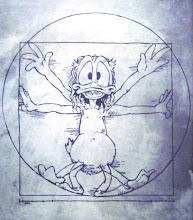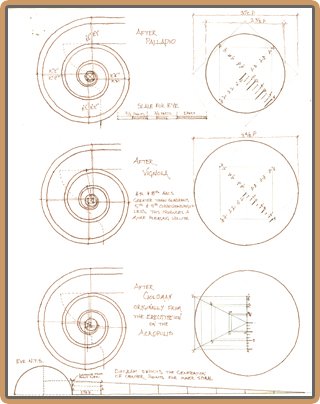
1. Emoticons :-(
Punctuation marks should be treated with respect. Do not disrespect them in front of me. They are not matter for art, and our society is stupid enough without promoting the linguistic devolution to hieroglyphs for idea conveyance. And don't give me that bullshit line about how 'it's convenient to use them for expediency in emails or IM'. It's convenient to pick my nose, but such convenience does not make it acceptable simply because I'm too lazy to reach for a Kleenex. If you can't convey sarcasm with the written word, then you're just going to look like a bigger jerk for using one of those winking debacles, and still come across as an idiot 13 year old.
2. Try and get away with this one
At issue here is the misuse of an infinitive. It should be try to get away... What if you didn't get away with it? You'd try and get away and then not get a way? Stupid.
3. Irregardless, you're still an idiot
I don't know what bothers me more...people who use 'irregardless' when they mean 'regardless', or the asshole who put 'irregardless' in the dictionary and then wrote: see regardless.

4. Seriously. I really could care less for you.
Take a peek at the illustration to the right. Very few people actually get this one correct, implying a sardonic inner meanness of spirit AND an inability to understand what their flapper is really saying. Please don't say 'I could care less' when you mean to say that you don't mind if this or that happens. Hint: if in conversation, I say to you: 'I could care less for you', take it as a huge, however so quantitatively ambiguous, compliment, and a rare but pure display of true Christian Charity.
5. The George W. Nuclear
I have a gadget on my google homepage that is constantly feeding me great gaffes from Dubya. I want to name the mistake of saying 'noo-kyoo-ler' instead of 'noo-klee-er' after His Gaffeness.
6. Lend me you ear or I'll lay waste upon you.
Don't use loan for lend. 'Loan' is a noun. 'Lend' is a verb. Again, don't misuse 'lie' when you mean 'lay'. 'To lay' means to set, or put. 'To lie' means to recline. Chickens lay eggs. People lie down.
 7. This is just between you and I...
7. This is just between you and I...No. I'll try to keep it between you and me that you're a moron who should go back to redo grammar school. And don't say 'responsibility was shared between John and myself' just because you know 'I' isn't right but you don't know what else to say, or are unsure of the correctness of 'me' because of unfamiliarity. You'll just sound like a more refined fool.
8. Apostrophe pimping
The poor apostrophe is already an overtaxed mark. Please don't thrust responsibilities upon it that are not becoming. If you are unsure of basic apostrophe use, please visit THE APOSTROPHE PROTECTION SOCIETY, they have 1000s of examples. (not 1000's)
9. Homophones
As an addicted punster, you'd think that I wouldn't mind the sprinkling in of misused homophones, right? WRONG. If you use 'its' for 'it's', confuse 'their' for 'they're', misuse 'your' when you mean 'you're', then you better pray I don't know where you live. While I'm on the topic, don't ever, ever excuse yourself from a witty remark by 'no pun intended'. If you let it fly, take pride in it, even if it was a stroke of accidental genius. If you insist on not punning, it's still better to let it out and bear the shame, than keep it in and bear the pain.
10. Going to the Libary in Febuary
I'll forgive my toddler, but not by friends for leaving out an 'r' in Library or February. You should practice saying these while driving. It relieves the tension of life.
And because my lists GO TO ELEVEN:
11. Basically, this is infinitely worse than anything else: literally
So many people--young people usually, but often crappy writers--overuse 'basically' that it's just sickening. The only basic truth we hear out of their yapping mouths is that they have a very basic vocabulary. 'Basically' used this way is a kind of adverbial overstatement, similar to LITERALLY, but not quite as bad as 'infinitely'. I recall C.S. Lewis' remarks about the presumptive comparison to the 'infinite':
"Don't use words too big for the subject. Don't say 'infinitely' when you mean 'very'; otherwise you'll have no word left when you want to talk about something really infinite.""Because really, where could you go from there? Where? Nowhere. But what we do, if we need that little push over the cliff, we go to eleven. One louder."



4 comments:
Neat. I'm going to preen my posts a whole lot more carefully henceforth.
Nuclear pronounced as "NEW-queue-lur" isn't a grammatical error, so I'm not sure how it can be a grammatical pet peeve. And it's not limited to Bush, it's a localized dialectical thing. I'm not saying it's right, but it's to a slight degree excusable. People pronounce words the way their parents and schoolmates pronounce them, and in Texas, that's how they say it. I don't like it, but that's the way it is. Of course, Bush should have figured out when he went to Yale how to pronounce words according to a less localized dialect.
And the "literally" thing is an interesting one. All of those sorts of adverbs began as forceful modifiers, then lost their force and had to be replaced by new and yet more forceful modifiers. I'm thinking of "really" (which means like the real), "very" (like the truth), "truly" (also, like the truth), "totally" (like the whole). Literally means "like the meaning of the letter", but is losing that meaning in favor of just becoming another forceful modifier. "Very excited" used to mean "excited in truth", and "really excited" used to mean "excited in reality", but lost their force and just came to mean "excited to a great degree". So "literally" seems to be on the same path. Again, I don't like it, but as a descriptivist, I'm not sure I can do much about it.
Anonymous,
My short response to your comments is: Amen, Amen I say to you: Very true!
My medium response is: I generally agree about pronunciation, but I have little patience for idiotic idiomatic idiosyncrasies. My own parents taught my by example to say 'wuhder' instead of 'water', which is peculiar to Philadelphians. But I still avoid like the plague saying it that way. Some allowance must be made, I agree. In fact, it spices up dialogue.
As to it's not being grammatical, you're right, but I think of that example and the one about 'libary/febuary' to be a kind of orthography of the spoken language.
I, too, am a descriptivist, and I allow for a much greater leeway in the spoken word than the written. I have much less tolerance for formal language. i.e. 'ain't' is a word when spoken, not written.
I love your thoughts on adverbs, and because of the similarity of thought with a close friend, I wonder if I know you...if not, read this post, I'd like to hear your thoughts about Chesterton's rant: http://paronomasialpensees.blogspot.com/2008/05/deriving-my-advocates-nuts.html
Anonymous,
Two corrections:
I have much less tolerance for ignorant barbarisms to formal, written language.
Because the link was too long, blogspot chopped it. Here's a tinyurl:
http://tinyurl.com/5ccdwo
Post a Comment